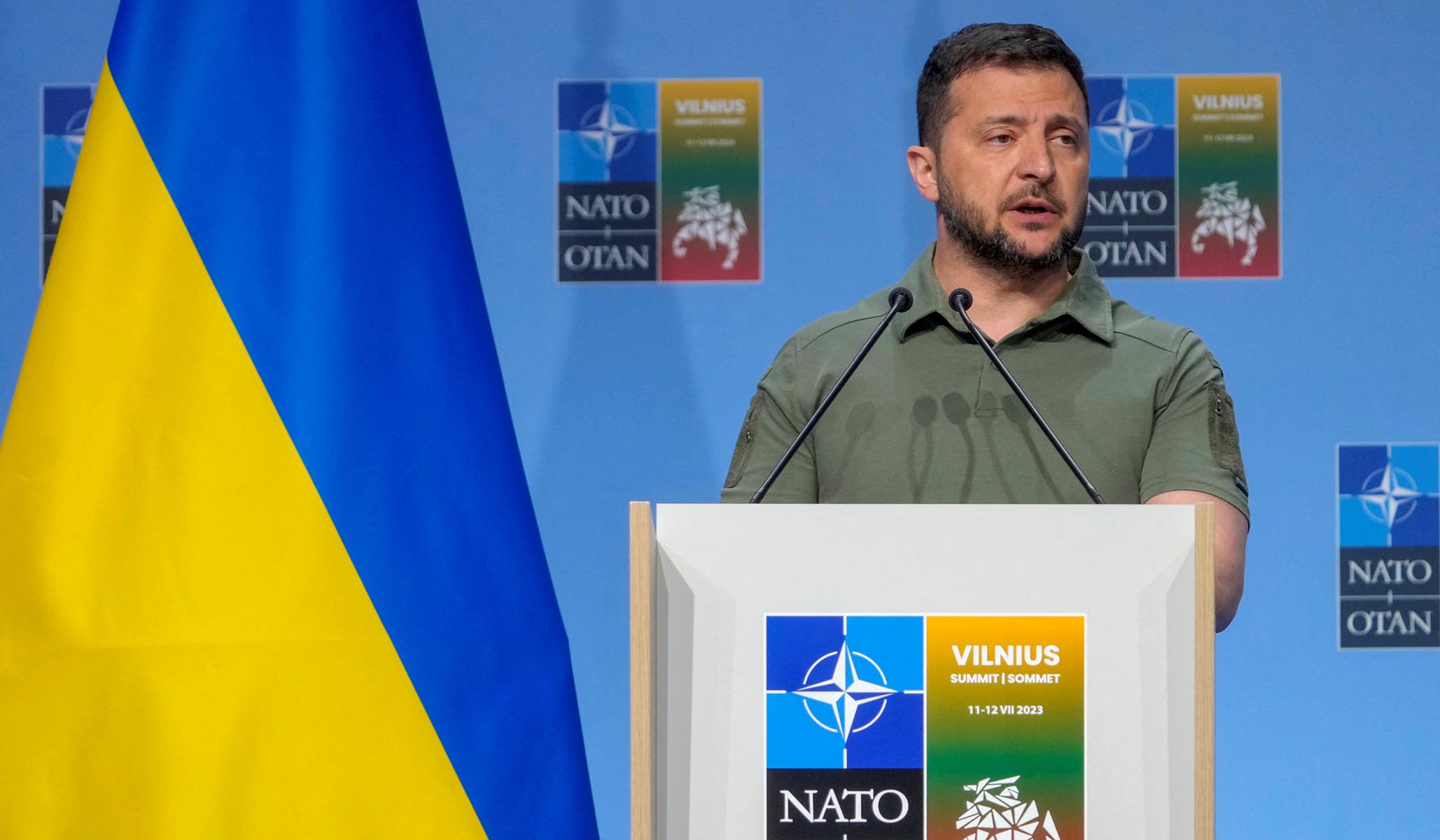


On Thursday, the secretary of defense broadcast to the world (or at least to CNN’s audience) that Ukraine’s admission to NATO was a fait accompli:
US Secretary of Defense Lloyd Austin told CNN on Thursday he has “no doubt” that Ukraine will become part of NATO after Russia’s war against the country ends. “I have no doubt that will happen, and we heard just about every country in the room say as much,” Austin said in an interview with CNN’s Wolf Blitzer in Vilnius, Lithuania, following a two-day summit that was dominated by the question of when Kyiv would join the alliance.
“I think that was reassuring to [Ukrainian President] Volodymyr Zelensky, there are other things that should happen, like judicial reform and things that make sure that the democracy is in good shape,” Austin added. NATO’s summit in Vilnius began with tense exchanges between Kyiv and the West over the lack of a timeline for Ukraine’s entry to the alliance, but ended Wednesday with a flurry of solidarity and security guarantees from Western leaders that Ukraine’s future is with the military bloc. When asked by Blitzer how close Ukraine were to meeting NATO standards, Austin said that there was “still work to be done.” “In terms of training and equipping, there is still work to be done,” Austin said. “But we are doing this work now as they fight this war and so things have been done up to this point there is more that will need to be done to ensure that they have a full complement of capabilities.”
This is a shift from just a week ago, when Joe Biden was saying that Ukraine wasn’t ready. Austin may not be speaking entirely out of turn, given the strong front that NATO countries put on by the end of the summit. But regardless of whether Ukraine meets the military and other internal qualifications for NATO membership, it nonetheless strikes me as reckless and premature to treat its admission to NATO as settled.
As I have said all along, there are two sets of issues in the Ukraine war: One is Russia’s war aim to extinguish Ukraine as a sovereign state, either formally or by an informal state of vassalage, and either now or in a future conflict. The other set of issues involves matters such as territory (Russia wants more of Ukraine’s, Ukraine wants more of its own back from Russia) and economy.
The future of Ukraine’s security agreements with the West is one, but not the only one, of the ways in which Ukraine can preserve its capacity to survive not just this war but the next one intact — or, better still, deter the next war from happening any time soon. We’d be fools to take NATO membership off the table unilaterally, because avoiding it is something of great value to Russia. But for that very reason, we also should not be declaring it settled in advance of any peace settlement. The most realistic way in which this war ends is a negotiated resolution, and it is in our interests for that resolution to be on the best terms possible for Ukraine. It’s fine, and even prudent, to signal that the internal obstacles to Ukraine’s NATO membership are close to being surmounted. But whether Ukraine ends up in NATO (or the EU) is ultimately a bargaining chip with the Russians. It should be made clear to Russia that if it wants a deal that keeps Ukraine out of NATO, it will need to come to the table — but that such a deal is still possible if it does.
